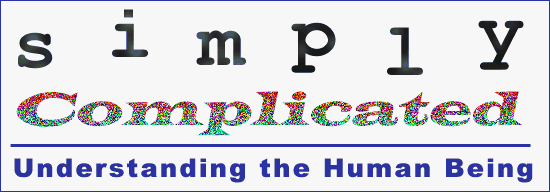Basic Instincts and Beyond
Basic instincts can be in conflict, too, both within groups and within individuals. Even in the same situation, some people can feel the pull of one inner command while other people feel the pull of another command.
Bearing children, for example, is an instinct. It is basic to species survival and is rooted deep in the psyche of every human. At the same time, individual survival is as basic as child-bearing because staying alive must be done before one can bring new humans into the world. This sets the stage for a conflict in basic instincts.
One human heeds the call of the child-bearing instinct. It feels right and natural (as do all instincts). The notion of doing anything to prevent bearing children becomes a betrayal of a basic human function, which is, unconsciously, a betrayal of our duty to continue our species.
Another human feels the pull on a more individual level. The notion of having children without the means -- material, mental, or emotional -- to nurture them becomes to this person a betrayal of our duty to give children the best resources for their survival, which is another instinctive reaction. These people realize that sometimes having children can have a very negative effect on an individual's well-being, and thus on a child they might have.
Yet another human looks to the general consequences that having children might have on the whole group. The notion of increasing the number of humans in an area that cannot support them becomes a betrayal of our duty to both ourselves and the world that must sustain us and those we breed.
This is a conflict between equally ingrained inner commands: Humans must bear children to keep the species going. They must make sure they have the resources to take care of themselves and their children.
Every basic instinct humans have is usually balanced by at least one other instinct.
- Suicide is the ultimate act of individuality, and can be a noble act of self sacrifice for the good of the group. For example, holding off hostile forces so that others may escape. Yet killing oneself can also be a contradiction to the deep-seated survival instinct shared by all humans. Since suicide is rare among nonhuman species, one must wonder if it must have a distinct and necessary place in the human condition.
- Stability and continuity are much-sought-after because they increase the chances of our children surviving. Yet, change is an integral part of what makes our lives better...and thus our children's too.
- Some people consider sex to be a purely individual act, centering around the immediate emotions generated during the sexual act. However, sex can also have far-reaching consequences for the groups the individuals belong to.
- To survive, all species -- including humans -- need access to all their internal resources. Anything that dulls these resources lessens the chances of survival. Yet most all species use some kind of drug to change their consciousness, whether it be to reduce anxiety, increase perception, or deaden pain. The group usually provides the balance between the need for clear-headed thought and the need for altering mental activity. The group controls which drugs are acceptable and when and where they are used.
- Individuals have within them the strongest of commands: keep yourself alive. And the groups we form build in controls to safeguard the lives of their members. Yet death is part of the natural cycle of the species: a way of balancing resources and consumers, new ideas and old.
For humans, every situation can mean more than one possible reaction to the inner commands of nature. This is part of the wonder of being human, and part of the conflict and confusion of being human.
Knowing that they have these inner commands allows them to begin to understand why they act the way they do. They can then ponder the interrelatedness of all the instincts that make them what they are.
No human being can cease the urges brought out from within. They can, however, change their responses to these urges. They can think, they can contemplate, they can interpret. And then they can act accordingly.
They cannot argue with instinctive behavior when the instinct is in command. Only when the intellect is in command can they deal with a situation with reason and compromise.
All of us...from the first human to the last, whatever culture, language, or race, whatever the age we lived in...are basically the same. The more we look outside our individual selves and recognize who we all are, the better our chances of surviving and advancing as a species.
Title Page

